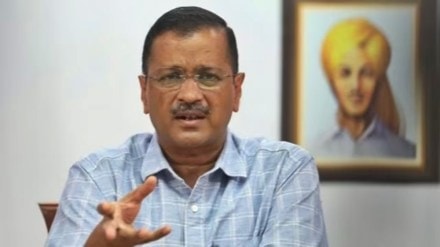The Supreme Court on Monday questioned why Delhi Chief Minister Arvind Kejriwal had not appeared before the Enforcement Directorate (ED) despite repeated summonses for statement recording and why he had not filed a bail application before the trial court yet.
A division bench of Justices Sanjiv Khanna and Dipankar Datta posed several questions to senior advocate Abhishek Singhvi, who was representing Kejriwal. During the hearing, Justice Khanna verbally asked Singhvi, “Just out of curiosity, why did you not move the bail application?”
Also Read:‘Two women paraded naked in Manipur approached police Gypsy but…’: What CBI chargesheet says
The bench further pointed out a seeming contradiction in Kejriwal’s stance, stating, “Are you not contradicting yourself by saying that his statements under section 50 of the Prevention of Money Laundering Act (PMLA) were not recorded? You don’t appear on summons for recording of statements under section 50 and then you say it was not recorded,” PTI reported.
It questioned what the investigating officer should do if Kejriwal does not respond to summons.”If you don’t go for the recording of statements under section 50, then you can’t take the defence that his statement was not recorded,” Justice Khanna said.
Also Read:‘Mangoes, sweets and aloo puri’: Delhi court questions Arvind Kejriwal’s home received food amid health concerns
To which Singhvi responded, “Thanks for saying that. Non-recording of section 50 statements is not a defence to arrest for reasons of believing there is guilt.”
“I am saying other materials also do not establish my guilt. The ED came to my house to arrest me. Then why can’t ED record my statement under section 50 at my house?” Section 50 of the PMLA pertains to the power of ED authorities to issue summons and gather documents, evidence, and other materials.
Also Read:PIL filed in Delhi HC seeking facilities to enable Kejriwal to work as CM from Tihar jail
Singhvi further highlighted that on April 16, 2023, Kejriwal cooperated with the CBI in connection with the case and answered all queries.
“Today, you cannot say that we will arrest you because you did not appear on the summons. Can you say that since you did not cooperate, you will be arrested? Non-cooperation cannot be a ground for criminality or grounds for arrest. This court has last year held that non-cooperation cannot be a ground for arrest under the PMLA,” Singhvi said.
The senior lawyer pointed out that the chief minister doesn’t have immunity from prosecution, questioning if he has fewer rights than an average citizen. Singhvi argued that the Delhi High Court’s denial of relief against coercive action doesn’t justify an ED arrest.
The hearing adjourned without a conclusion and will resume on Tuesday.
The Enforcement Directorate (ED) stated in its recent affidavit to the Supreme Court that Kejriwal is the “central figure and primary conspirator” in the excise policy scam. They argue that arresting someone based on evidence does not compromise the integrity of free and fair elections.
The Supreme Court issued a notice to the ED on April 15, requesting their response to Kejriwal’s petition. Kejriwal is currently lodged in the Tihar jail under judicial custody after his arrest on March 21 in the case.
Earlier, on April 9, the high court upheld Kejriwal’s arrest in the money laundering case, deeming it lawful. The court stated that the ED had limited options after Kejriwal repeatedly ignored the summons and declined to participate in the investigation.
The case revolves around alleged corruption and money laundering linked to the formulation and implementation of the Delhi government’s now-defunct excise policy for 2021-22.
